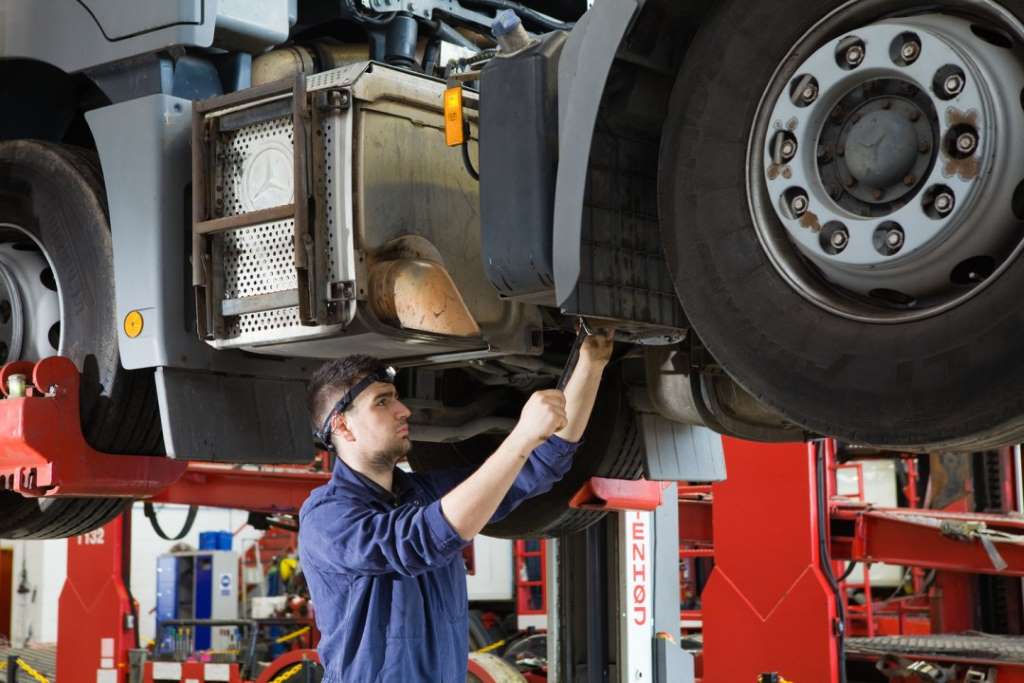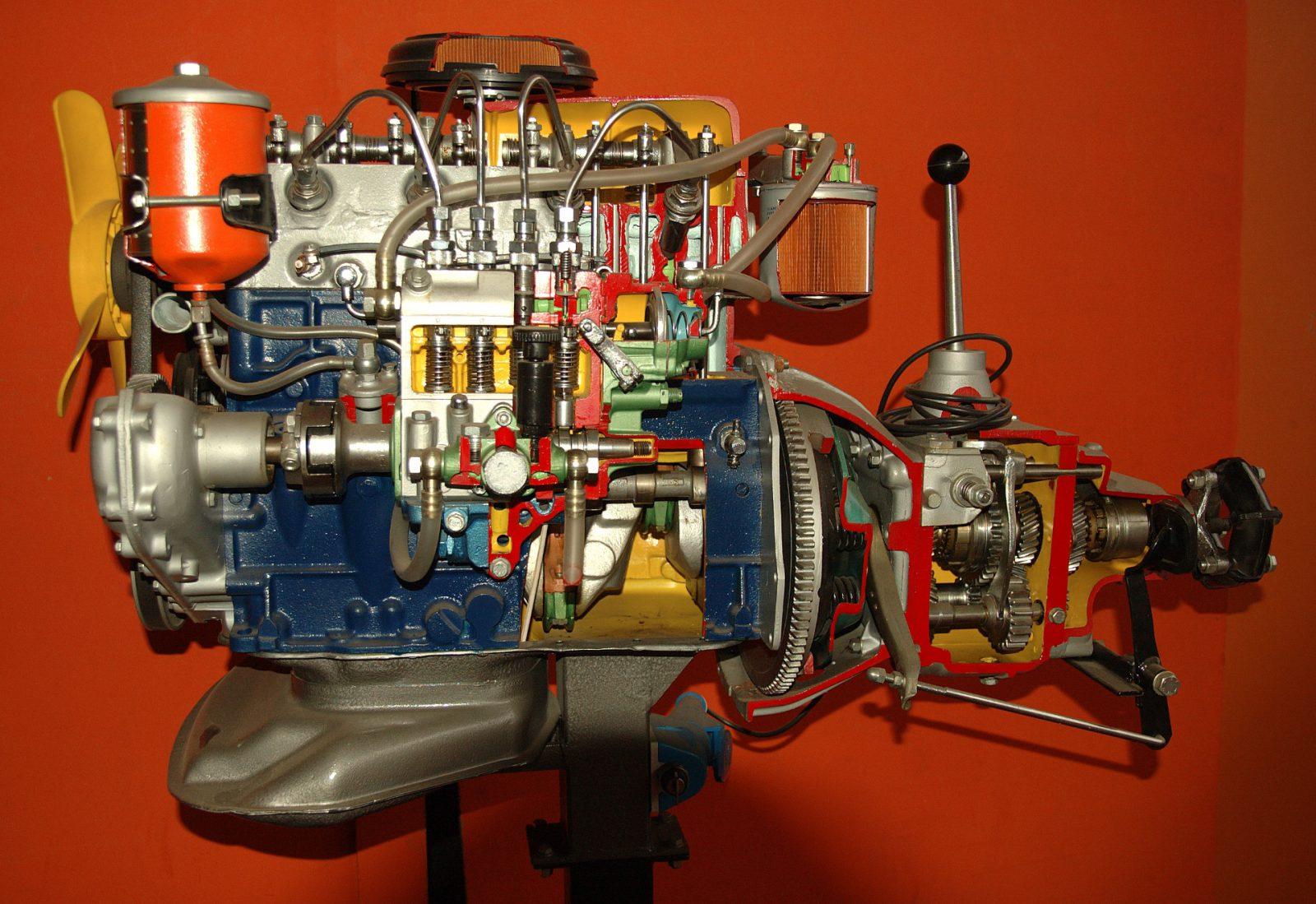Do you ever wonder why are diesel engines used in heavy vehicles? Well, copious reasons are there to come across the precise answer to it.
Diesel engines encompass enormous properties. Different people have different standpoint regarding the benefits, and usage of a diesel engine. However, the features of a diesel engine may vary from vehicle to vehicle.
So, let’s check out the foremost reasons for using a diesel engine in the giant vehicles.
Contents
Top Reasons Why are Diesel Engines Used in Heavy Vehicles
The amalgamations of various parts in an engine delineate the purpose and performance of the vehicle.
Therefore, the diesel engine has everything to do with the performance, power, and durability of a particular automobile. So let’s begin exploring the basic reasons for using diesel engines distinctively in heavy vehicles.
1. Highest Torque
Bulky automobiles such as trucks and cars require a huge amount of force to run the vehicle at the slow speed. As almost everybody knows that petrol burns faster than diesel, the diesel engine achieves a higher torque at slow speed.
It’s the prime requirement of any heavy vehicle. The lowest RPM rate of petrol, results in a quick-burning, which augments the economic cost of the automobile.
If you are using a cumbersome vehicle for income, using the petrol engine can be a big loss.
The diesel engine, on the other hand, is the best source of income, as you don’t have to refill the tank frequently. So that’s why are diesel engines used in heavy vehicles.

SEE MORE:
2. Greatest Efficiency
The higher temperature and power requirement of the heavy automobiles such as trains or ships result in the quick ignition spark.
In this scenario, the slowly combustion diesel has happened to be the most efficient fuel that burns at the moderate temperature.
Locomotives and ships have nothing to do with the size of the as speed is not the concern in such automobiles, but fuel efficiency does play an imperative role.
However, the engine size in the cars may vary. Regardless of the size of the diesel engine, it will provide the greatest efficiency for sure.
One can even use the effective maintenance tips to modify the engine as well. So the efficiency makes diesel engines ideal for heavy vehicles.
3. Utmost Compression Ratio
The bigger size of the diesel engine for cars is built by considering its extreme compression ratio and vibration level.
As the bigger vehicle doesn’t bother about the weight or vibration, which makes the diesel engine a perfect fit for it. The huge body of the bulky vehicle is enough to spread or damp these vibrations entirely.
Moreover, the advanced diesel engine has managed to minimize the NVH (noise, vibration, and harshness) for the small cars as well. Therefore, various small cars are opting for diesel engines.

How To Maintain Heavy Vehicles With Diesel Engines
Regular maintenance is crucial for heavy industrial vehicles equipped with diesel engines to extend their lifespan. Key maintenance tasks include:
Fuel Filter Replacement
Diesel engines are equipped with two fuel filters that should be replaced every ten to fifteen thousand miles. Diesel fuel often absorbs water due to condensation in the fuel tank.
Regularly changing these filters prevents water particles from compromising the diesel engine’s performance.
Air Filter Maintenance
The air filter should be changed approximately every twelve thousand miles. However, it’s essential to periodically inspect the air filter because a dirty filter can restrict airflow to the engine, causing it to consume more fuel than usual during acceleration.
Radiator Care
Diesel engines run at higher temperatures compared to gas engines, putting additional stress on the radiator.
Proper radiator maintenance is vital to prevent overheating, which can lead to damage to the engine’s gasket, cylinders, seals, and other critical components.

FAQs on Diesel Engines Used in Heavy Vehicles
-
Are diesel engines more fuel-efficient than gasoline engines in heavy vehicles?
Diesel engines tend to be more fuel-efficient in heavy vehicles due to their higher thermal efficiency and lower fuel consumption per mile, making them cost-effective for long-distance transportation.
-
Do diesel engines produce more emissions than gasoline engines?
Diesel engines traditionally produced more nitrogen oxides (NOx) and particulate matter emissions than gasoline engines.
However, modern diesel engines have advanced emission control technologies to reduce these pollutants and meet stringent environmental standards.
-
Are there any drawbacks to using diesel engines in heavy vehicles?
Diesel engines can be noisier and emit more visible exhaust compared to gasoline engines. Additionally, diesel fuel can be more expensive than gasoline in some regions.
-
How do diesel engines contribute to fuel savings in heavy vehicles?
Diesel engines offer better fuel economy because of their higher compression ratios and energy density of diesel fuel, which leads to more power and longer driving ranges between refueling stops.
-
Can heavy vehicles use alternative fuels instead of diesel?
Heavy vehicles can use alternative fuels like compressed natural gas (CNG) or liquefied natural gas (LNG) to reduce emissions. However, these options may require engine modifications and infrastructure changes.
-
Are there any environmental concerns associated with diesel engines in heavy vehicles?
Diesel engines have faced criticism for their emissions, but modern diesel technology includes emission-reduction systems like diesel particulate filters (DPF) and selective catalytic reduction (SCR) to mitigate environmental impact.
Check out this video from Truck Tropia to learn why massive semi-trucks rumbling down the highways run on diesel!
The Verdict
Cost, compression, combustion, torque, and many other features are the reasons why are diesel engines used in heavy vehicles. So get the most out of your bulky automobile with a resourceful diesel engine today.



